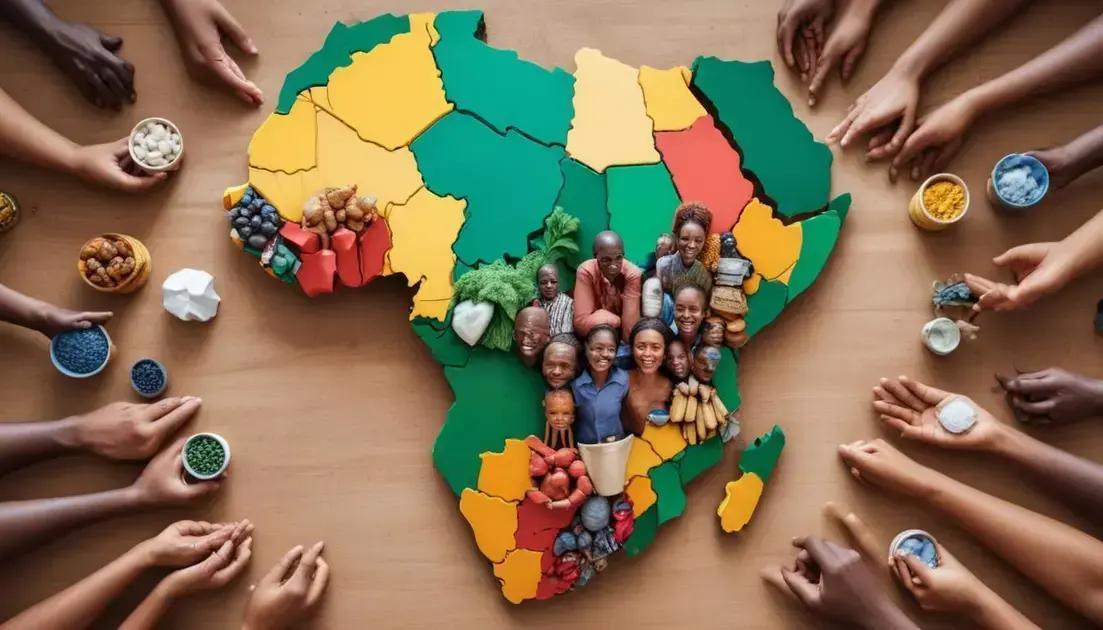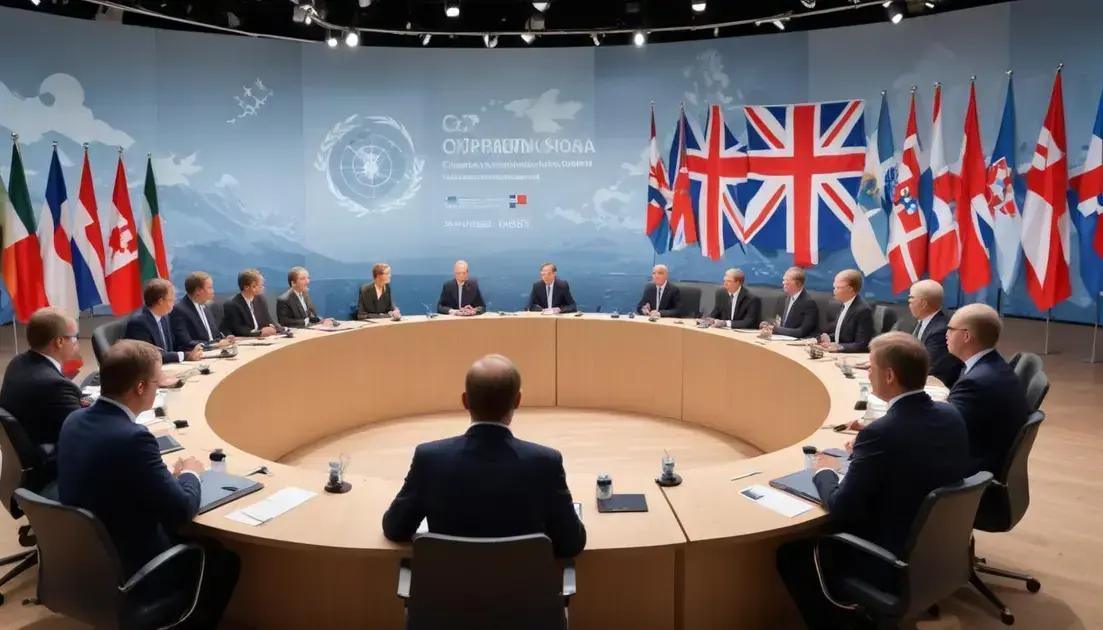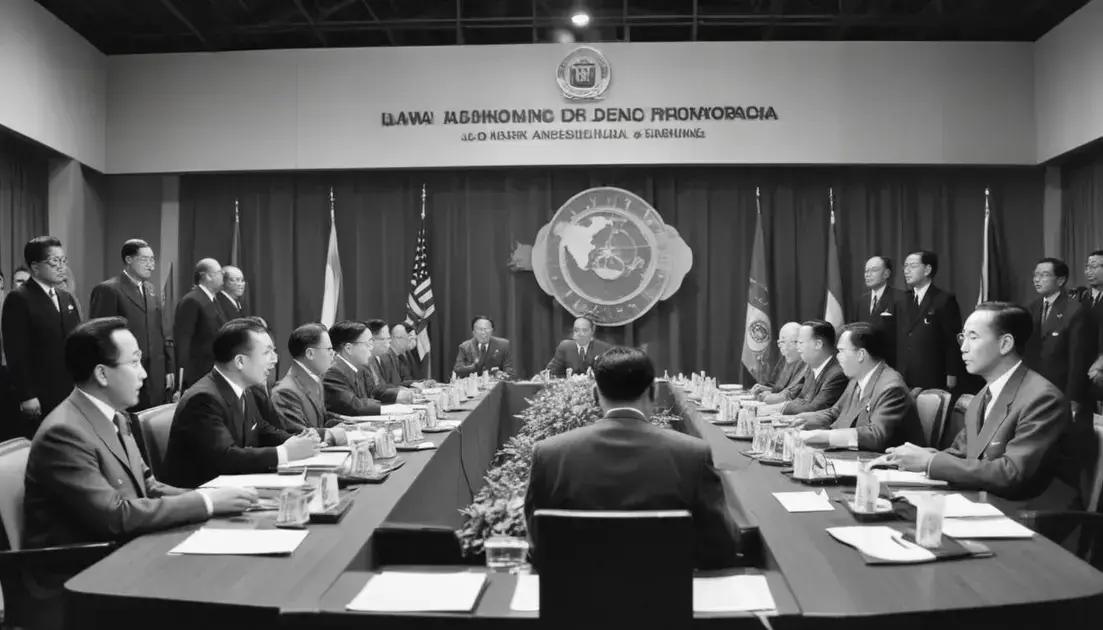
AfCFTA: The Entire African Market Unified
The African Continental Free Trade Area (AfCFTA) is set to significantly enhance economic growth across Africa by boosting trade, attracting investments, and creating job opportunities. By reducing trade barriers and fostering collaboration among nations, AfCFTA aims to unlock new markets and drive innovation. Additionally, as countries align their regulations and invest in workforce training, they can better equip citizens for the evolving job landscape, ultimately leading to a prosperous future for all African economies.
AfCFTA is more than just a trade agreement; it represents a visionary leap towards economic unity across the African continent. Curious about how this could reshape markets? Let’s dive in!
Understanding AfCFTA: An Overview
AfCFTA, or the African Continental Free Trade Area, aims to connect all African countries through trade. This agreement removes barriers, making it easier to sell goods across borders.
With AfCFTA, countries can work together more effectively. This means better cooperation and shared economic goals. It creates a bigger market for businesses, which is great for everyone!
How AfCFTA Works
The goal is simple: create a free trade zone where tariffs are reduced or eliminated. Tariffs are taxes on goods when they cross borders. Lowering these can boost trade significantly.
AfCFTA will help countries speed up their economic growth. By joining forces, they can negotiate better deals and attract more investment. This can lead to more jobs and opportunities for people across the continent.
Benefits for Businesses and Consumers
For businesses, AfCFTA opens up new markets. This means more customers and increased sales potential. Consumers also benefit, as they will have access to a wider variety of products at competitive prices.
With greater job creation and economic growth, the agreement can lead to a brighter future for millions of Africans. Businesses and consumers alike stand to gain from this new landscape.
Challenges Ahead
Even though AfCFTA has many positives, there are challenges too. Countries need to ensure fair practices, and smaller businesses might struggle to compete. Support and training will be essential to help everyone adapt and thrive.
In conclusion, AfCFTA represents a significant step toward economic unity in Africa. By understanding its importance, we can all play a role in shaping a prosperous future for the continent.
Benefits of a Unified African Market
A unified African market offers many exciting benefits. It can boost trade and create new job opportunities. Businesses can expand their reach and tap into untapped markets.
With fewer trade barriers, products can flow freely between countries. This means consumers enjoy a wider selection of goods at lower prices. Competition leads to better quality and service.
Increased Economic Growth
This collaboration can spark economic growth across the continent. Countries can share resources and expertise to develop industries. With AfCFTA, nations can attract more foreign investment, which can spark innovation.
Support for Small Businesses
A unified market also supports small and medium enterprises. These businesses often provide vital services and jobs in their communities. By accessing a larger market, they can grow and thrive.
Greater Collaboration
Collaboration leads to stronger relationships between African nations. Working together on trade projects can reduce conflicts and promote peace. As countries unite for mutual benefit, trust and cooperation will grow.
In summary, the benefits of a unified African market are clear. It boosts trade, fosters economic growth, and empowers small businesses. Plus, it builds collaboration and community spirit across the continent.
Challenges Ahead for African Trade
African trade faces several challenges that need attention. These challenges can slow down progress toward a unified market.
Infrastructure is a major issue. Many countries lack proper roads, ports, and railways. Without good infrastructure, moving goods is tough. This can lead to higher costs and delays.
Regulatory differences between countries can create confusion. Each nation has its own set of rules and tariffs. Aligning these regulations is vital for smoother trade.
Political Stability
Political stability plays a crucial role in trade. Inconsistent policies can scare away investors. When businesses don’t feel secure, they might hesitate to invest.
Skills Gap
Another challenge is the skills gap. Many workers need training to meet new demands in the market. Improving education and training programs will help the workforce adapt.
Access to Finance
Access to finance is also a hurdle. Many small businesses struggle to get loans. Without financial support, they can’t expand or take advantage of new opportunities.
Addressing these challenges is essential for a successful AfCFTA. Everyone needs to work together to overcome these hurdles and reach the full potential of African trade.
The Economic Impact of AfCFTA
The African Continental Free Trade Area, or AfCFTA, can have a big economic impact. It aims to boost trade between African nations. As trade increases, economies can grow stronger.
With lower tariffs, businesses can sell goods more easily across borders. This can lead to lower prices for consumers and more choices in the market.
Job Creation
AfCFTA is expected to create millions of new jobs. As companies expand, they need more workers. This means more opportunities, especially for young people entering the job market.
Attracting Investments
African countries can attract foreign investments through AfCFTA. Investors like the idea of a larger market. When they see potential for growth, they are more likely to invest.
Boosting Local Industries
Local industries can grow as they compete with others from across Africa. This can lead to innovation and better products. When industries thrive, communities benefit from economic stability.
In summary, the economic impact of AfCFTA can be profound. By working together, African nations can build a prosperous future and unlock their full potential.
Future Prospects for African Economies
The future prospects for African economies look promising with AfCFTA in play. This agreement can drive growth and development across the continent.
As trade barriers drop, businesses will have new opportunities. This can lead to innovation and expansion in various sectors.
Investment Growth
With more countries working together, attracting foreign investment will be easier. Investors like the idea of a large market with many potential customers.
Technological Advancements
Technological advancements can also shape the future. Using new tech can improve efficiency and create new industries. Countries can share knowledge and best practices, boosting development.
Improved Workforce Skills
The focus on education and skills development will prepare people for new jobs. A more skilled workforce can attract better job opportunities. Training programs can help workers meet market demands.
Overall, with collaboration under AfCFTA, African economies can thrive. A brighter future is possible as countries unite for progress.
Conclusion
In conclusion, the African Continental Free Trade Area (AfCFTA) has the power to transform economies across the continent. By fostering collaboration and reducing trade barriers, AfCFTA will pave the way for increased trade, job creation, and economic growth. As countries work together, they will attract more investments and develop innovative industries.
Moreover, focusing on education and skills training will ensure that the workforce is prepared for new opportunities. This effort will be crucial in helping African nations reach their full potential. Ultimately, with a unified market, Africa can build a brighter future for all its citizens, driving prosperity and sustainability across the continent.


